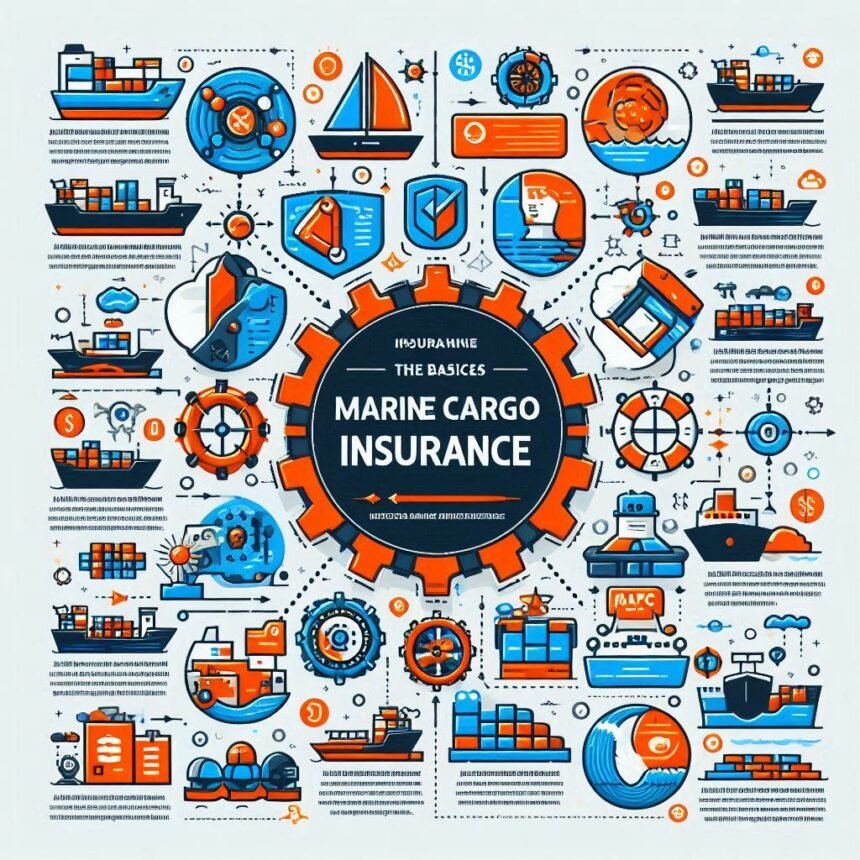Introduction to Marine Cargo Insurance
Marine cargo insurance is a specialized form of insurance designed to cover the loss or damage of goods transported by sea, air, or land. This type of insurance is essential for businesses involved in the shipping industry as it provides financial protection against a wide range of risks that could affect the cargo during transit. These risks include natural disasters, theft, accidents, and delays, all of which can have significant financial implications if not adequately insured.
The primary purpose of marine cargo insurance is to mitigate the financial impact of these risks, ensuring that businesses can operate smoothly without the constant threat of substantial losses. For companies engaged in international trade, marine insurance is not just a safety net but a critical component of their risk management strategy. It helps maintain the continuity of operations and provides peace of mind to both the shipper and the receiver.
The history of marine cargo insurance dates back to ancient times when merchants and traders sought ways to protect their investments during long and perilous sea voyages. Over the centuries, marine insurance has evolved significantly, becoming more sophisticated and comprehensive. Today, it is a vital part of the global trade ecosystem, enabling the smooth flow of goods across the world’s oceans.
In essence, marine cargo insurance plays a crucial role in facilitating international trade. By providing a safety net against potential losses, it helps businesses to manage their risks effectively and ensures that global supply chains remain robust and resilient. Understanding the basics of marine cargo insurance is therefore fundamental for any business involved in the shipping industry, as it safeguards their financial interests and supports their long-term growth.
Types of Marine Cargo Insurance Policies
Marine cargo insurance is an essential component of maritime trade, offering protection against potential losses or damages to goods while in transit. Various types of marine cargo insurance policies cater to different needs, ensuring comprehensive coverage for diverse shipping scenarios. Understanding these types can help businesses and individuals make informed decisions based on their specific requirements.
Open Cover Policies
An Open Cover policy is a continuous contract that covers all shipments made by the insured within a specified period, often a year. This type of policy is particularly beneficial for businesses that engage in frequent shipping. It provides automatic coverage for each shipment, eliminating the need to secure individual policies for every shipment. Open Cover policies offer flexibility, as they can be tailored to include various terms and conditions based on the nature of the cargo and the routes taken. For instance, a company exporting electronics regularly might opt for an Open Cover policy, ensuring that all their shipments are consistently protected.
Specific Voyage Policies
As the name suggests, Specific Voyage Policies, also known as Single Shipment Policies, provide coverage for a single shipment from the point of departure to the destination. This type of policy is ideal for infrequent shippers or for those transporting high-value or unique cargo. It offers the advantage of tailoring the coverage to the specific risks associated with a particular voyage. For example, a business transporting a one-time consignment of antique furniture would benefit from a Specific Voyage Policy, ensuring that the shipment is covered for that particular journey.
Time Policies
Time Policies cover all shipments made within a specified time frame, typically one year. Unlike Open Cover policies, Time Policies are not continuous but are instead bound by a fixed term. They are suitable for businesses that require coverage for all their shipments within a defined period but do not need the flexibility of an Open Cover policy. An example scenario would be a seasonal exporter of agricultural products who needs comprehensive coverage during the peak shipping season.
Each type of marine cargo insurance policy offers unique advantages, catering to various shipping needs and scenarios. By understanding these options, businesses and individuals can select the most appropriate coverage to safeguard their maritime ventures effectively.
Key Coverage and Exclusions in Marine Cargo Insurance
Marine cargo insurance is designed to protect the financial interests of those involved in the shipping and transportation of goods. One of the primary coverages provided by marine insurance policies is protection against the loss or damage of cargo due to natural disasters. This includes events such as hurricanes, earthquakes, and other severe weather conditions that can impact the safety of goods during transit.
Another significant coverage area is protection against piracy. In recent years, piracy remains a substantial threat in various regions, particularly along certain international shipping routes. Marine cargo insurance typically covers the loss or damage of goods resulting from such criminal activities, offering a vital layer of security for shipping companies and cargo owners.
Accidents during transit, whether by sea, air, or land, are also a common risk covered by marine cargo insurance. These accidents can include collisions, overturns, and other unforeseen incidents that can lead to the loss or damage of goods. Having insurance coverage for these events ensures that businesses can recover financially and continue operations without significant disruption.
However, it is equally important to understand the exclusions commonly found in marine cargo insurance policies. Improper packing is one such exclusion. If goods are not packed according to industry standards or specific guidelines, any resulting damage may not be covered. This places the onus on the shipper to ensure that packing is done correctly to avoid potential disputes.
Inherent vice, or the natural characteristics of goods that cause them to deteriorate or become damaged over time, is another exclusion. Items that are prone to spoilage or degradation due to their nature may not be covered under marine cargo insurance. Additionally, delays in transit that do not result in physical loss or damage are generally not covered. Understanding these exclusions is crucial to mitigate risks effectively.
Thoroughly comprehending the terms and conditions of marine cargo insurance policies is essential for ensuring adequate coverage. By doing so, businesses can better navigate the complexities of marine insurance and safeguard their cargo against a wide range of potential risks.
Steps to Obtain and Manage Marine Cargo Insurance
Obtaining and managing marine cargo insurance is a crucial aspect of safeguarding your goods during transit. The first step in this process involves evaluating and selecting the right insurance provider. Research various insurers, comparing their reputations, financial stability, and customer service records. It’s essential to choose a provider with a proven track record in marine insurance to ensure reliability and comprehensive coverage.
Once you have narrowed down your options, request quotes and scrutinize the terms and conditions of each policy. Pay attention to the scope of coverage, exclusions, and any additional clauses that may impact your protection. Understanding these details will help you make an informed decision and choose a policy that aligns with your specific needs.
Documentation is a critical component when obtaining marine cargo insurance. Ensure you have all necessary information, including details about the cargo, shipping routes, and modes of transport. Accurate documentation helps in the smooth processing of your insurance application and claims, if necessary. Work closely with your insurer to provide any additional documentation they may require.
After selecting a policy and completing the necessary paperwork, the next step is purchasing the insurance. Ensure that the policy is activated before the shipment begins, as coverage typically starts from the point of origin. Keep a copy of the policy document and any related correspondence for your records.
Managing marine cargo insurance involves regular policy reviews to ensure continuous adequacy of coverage. As your business evolves, your insurance needs may change. Periodically assess your policy to determine if adjustments are required, such as increased coverage limits or additional endorsements.
In the event of a claim, promptly notify your insurer and provide all relevant documentation. Understanding the claims process and having a clear procedure in place can expedite the resolution and minimize disruptions. Additionally, implementing risk management strategies, such as proper packaging, accurate labeling, and choosing reliable carriers, can help reduce potential losses and enhance the effectiveness of your marine cargo insurance.








